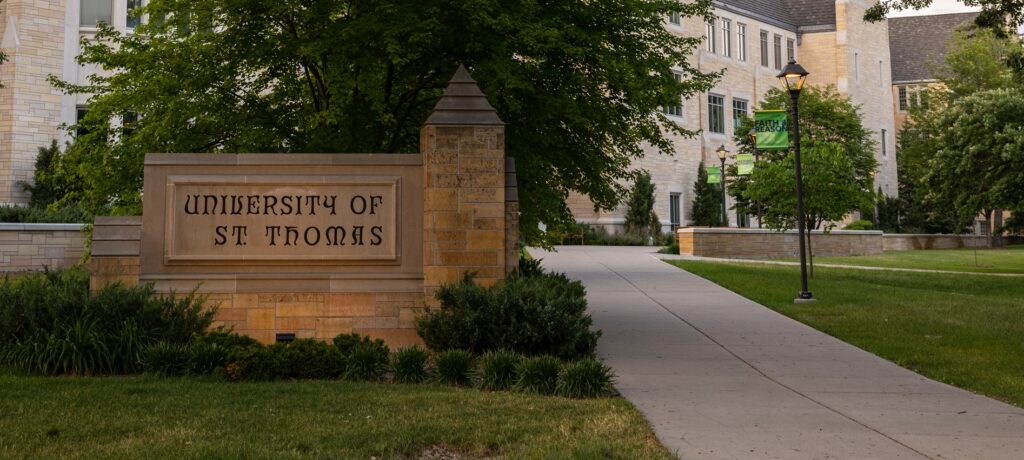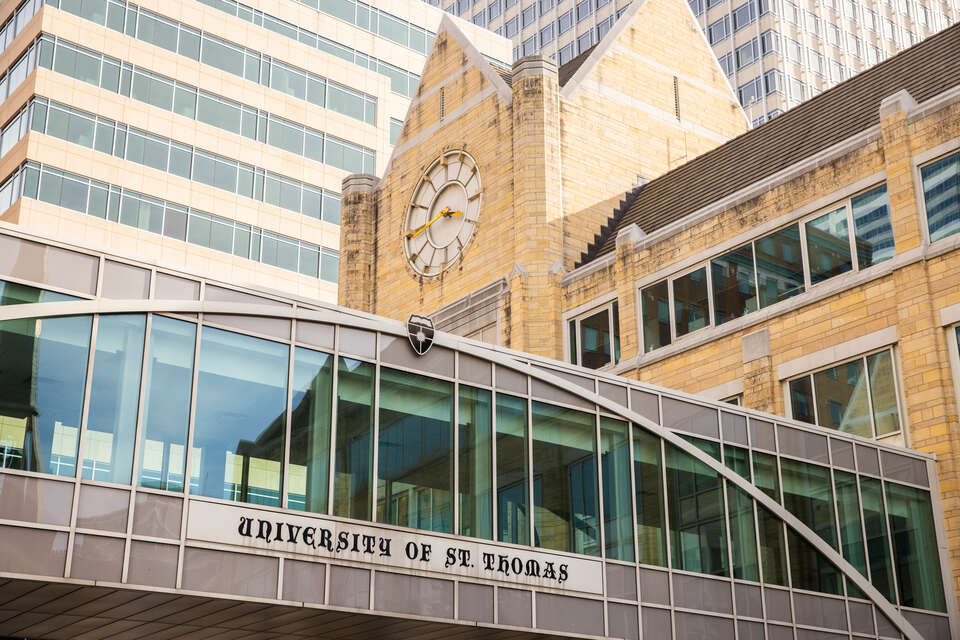Women's History Month lecture:
Minnijean Brown Trickey, member of the ‘Little Rock Nine,' to speak March 12 at St. Thomas
Minnijean Brown Trickey, who in 1957 made history as a one of the "Little Rock Nine," will deliver the 15th annual Luann Dummer Lecture at 7 p.m. Wednesday, March 12, in O'Shaughnessy Educational Center auditorium at the University of St. Thomas. It is free and open to the public.
The "Little Rock Nine" was a group of nine African-American students who enrolled at Little Rock ( Ark.) Central High School after the U.S. Supreme Court's historic 1954 Brown v. Board of Education decision. The ruling declared that the racial segregation of the nation's public schools was unconstitutional. After the decision, the National Association for the Advancement of Colored People (NAACP) began an effort to register black students in previously all-white schools throughout the South. In Arkansas' capital city, desegregation was set to begin gradually with the 1957-58 school year.

The Little Rock Nine posed with NAACP President Daisy Bates in 1957. Front row, left to right: Thelma Mothershed, Minnijean Brown, Elizabeth Eckford and Gloria Ray. Top row, left to right: Thomas, Melba Pattillo, Terrence Roberts, Carlotta Walls, Bates and Ernest Green.
(Photo credit: Library of Congress)
Nine black students, including then-16-year-old Minnijean Brown, were selected on the basis of their excellent grades and attendance at their previous schools. Their attempts to attend Little Rock Central the first week of September 1957 led several segregationist "citizens' councils" to protest and to physically block them from entering the school. Arkansas Gov. Orval Faubus, who maintained that the federal government had no right to contradict state statutes allowing for segregation, even called out the Arkansas National Guard to prevent the students' attendance. President Dwight Eisenhower intervened, warning Faubus to comply with the high court's ruling.
Attorneys from the U.S. Department of Justice would have to obtain an injunction ordering the governor to withdraw the National Guard. The Little Rock Police and later armed federal troops would escort the students past hundreds of protesters, and the "Little Rock Nine" finally attended their new school for the first time on Sept. 25, 1957. Federal troops would remain on duty until the end of the school year.
Although the president saw to the enforcement of desegregation of the school, the nine students still endured a year of physical and verbal abuse, hostility and social isolation. In December 1957, Brown was verbally confronted by a group of white boys during lunch in the school cafeteria. Whether it was an accident or an act of frustration, a dumped bowl of chili on her antagonists led to her suspension from school for six days. Following additional altercations with white students, she was suspended for the rest of the year in February 1958 and transferred to New Lincoln High School in New York City, where she earned her diploma.
Brown married Roy Trickey, a fisheries biologist, in 1967. She attended Southern Illinois University, where she majored in journalism, then moved with her husband to Canada, where she earned her Bachelor of Social Work degree from Laurentian University and a Master of Social Work from Carleton University in Ottawa. The Trickeys raised six children.
A social activist, she worked on behalf of peacemaking, environmental issues, developing youth leadership, diversity education and training, cross-cultural communication, and gender and social justice advocacy. She taught social work and cross-cultural communication at Carleton and at community colleges in Canada. From 1999 to 2001, during the Clinton Administration, she served as deputy assistant secretary for workforce diversity in the U.S. Department of the Interior. She also has been a facilitator for the Sojourn to the Past Project, an interactive history and travel course for high school students.
Brown Trickey has received many awards for her social justice work, including: the Lifetime Achievement Tribute by the Canadian Race Relations Foundation; the International Wolf Project Award for contributions to racial harmony; and, with the Little Rock Nine, the NAACP Spingarn Medal and the Congressional Gold Medal. She is the subject of a documentary, "Journey to Little Rock: The Untold Story of Minnijean Brown," and received of the Mary Gay Shipley Writing Fellowship from Arkansas State University's Ph.D. program in heritage studies. She is writing her memoir and once again calls Little Rock her home.
Brown Trickey's lecture at St. Thomas will explore social change, diversity and how far we have come since the autumn of 1957 in Little Rock. She also will share her thoughts about how far we have yet to go in the journey toward freedom and equality in the United States.
St. Thomas' annual Women's History Month lecture is named for the late Dr. Luann Dummer, a St. Thomas English professor whose 1992 estate provided approximately $1 million for the creation of a women's center at St. Thomas and an endowment for its programs, including the annual lecture series.
For further information about Brown Trickey's visit, contact UST's Luann Dummer Center for Women, (651) 962-6119.






